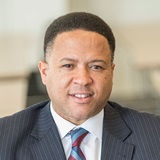Stories of Far-Reaching Health Inequity
TBF News Summer 2018
Do social divides kill? That’s the provocative—but logical—question posed to a gathering of Boston Foundation partners in the area of health and wellness by guest speaker Dr. Sandro Galea, Dean of the Boston University School of Public Health. He addressed participants assembled for an idea-sharing retreat—professionals representing an array of organizations, including state government, after-school programs, nursing services, food projects and others intent on improving Boston’s overall health with a particular focus on closing the health equity gap.
The gap isn’t merely about access to services. As Galea emphasized, it’s about health, not just health care—which is also the focus of the Boston Foundation’s work in Health & Wellness. He presented data that linked age, gender, income and race to different health outcomes. His graphs showed the flat-lining earning power of most Americans, declining economic mobility, the persistent wage disparity for people of color and women, and race-based gaps in health insurance coverage, home ownership, education and, inversely, incarceration.
The data are convincing. But an analogy Galea shared may be more memorable: A busy man wants a pet but only has time for a goldfish. He feeds it the top quality food. He takes it to a prestigious vet. He gives it the proper medications and supplements. And yet, it dies young. The man never changed the water.
Galea acknowledged that with this particular audience he was largely singing to the choir, and so raised the natural question: What next? How do we change the water? He exhorted them to share widely what they see; tell the stories that reveal the pervasive health inequities, tied to so many other inequities, in even our most thriving economies—and dating back centuries. Consider blues singer Blind Willie Johnson, born in 1897 and blinded as a youth in a domestic violence incident. Made homeless by Jim Crow laws in the 1940s. Denied hospitalization when he contracted malaria. Died within the year. Did malaria kill him, or did everything else? Did social divides kill him? Surely as much as a mosquito bite.
Real life stories can be as essential as data. As Vice President of Programs Orlando Watkins said in opening the event, “From our seat of privilege and power, we need to work hard to know and be with the communities needing support to close the equity gaps.”


